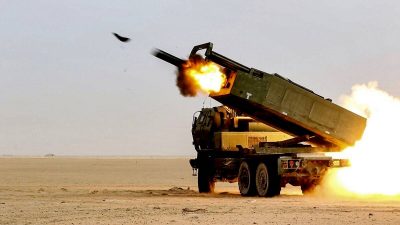The Privatization of War: U.S. Defense Contractors Plan Trip to Taiwan
Contractors to explore co-production of drones and ammunition

All Global Research articles can be read in 51 languages by activating the Translate Website button below the author’s name.
To receive Global Research’s Daily Newsletter (selected articles), click here.
Click the share button above to email/forward this article to your friends and colleagues. Follow us on Instagram and Twitter and subscribe to our Telegram Channel. Feel free to repost and share widely Global Research articles.
***
Our thanks to Nikkei News, Excerpts from Nikkei Report:
Around 25 U.S. defense contractors plan to send representatives to Taiwan in early May to discuss joint production of drones and ammunition, US Taiwan Business Council President Rupert Hammond-Chambers told Nikkei, as Washington explores various options to help bolster the island’s defenses.
The delegation will be led by Steven Rudder, the retired commander of the U.S. Marine Corps Forces Pacific. This would be the first large group of envoys focused specifically on the defense industry to visit Taiwan from the U.S. since 2019.
In addition to talks with representatives from the Taiwanese defense industry, it is looking to meet with Taiwanese President Tsai Ing-wen.
Hammond-Chambers said that Tsai is focused on bolstering Taiwan’s defense industry and that the trip is meant “to promote defense industry cooperation with Taiwan.”
The U.S. delegation will look for opportunities to provide advanced technology and jointly develop drones with Taiwanese companies. Several American defense contractors with drone expertise will take part in the upcoming trip.
Drones can be used for both surveillance and armed attacks and are considered a critical tool in deterring a Chinese invasion of Taiwan. They are also relatively cheap and can easily be deployed at a large scale.
U.S. companies typically require government authorization to jointly produce weapons with overseas partners.
…
Washington is open to the idea largely because American defense contractors are already struggling to keep up with obligations at home and abroad. The U.S. still needs to deliver around $19 billion in promised arms to Taiwan. Companies began boosting domestic production capacity following Russia’s invasion of Ukraine, but it will take time before these additions come online.
… “In a major regional conflict — such as a war with China in the Taiwan Strait — the U.S. use of munitions would likely exceed the current stockpiles of the U.S. Department of Defense,” Jones wrote. He proposed co-production with overseas partners as a potential solution.
In parallel with the defense industry efforts, the Biden administration is urging some European countries to help arm Taiwan. Almost all of the weaponry that Taiwan has procured from overseas in recent years has come from the U.S.
“It is a widespread opinion of the Biden administration that Taiwan should be able to procure from a variety of different sources,” the Biden administration official said
“We understand areas where it might make sense for some of our allies and partners who manufacture certain capabilities, for those capabilities to be made available to Taiwan,” the official said. “In those cases, we definitely are reaching out to those partners.”
Three sources involved in the defense partnership between the U.S. and Taiwan said Washington has been reaching out mostly to European countries.
Sweden could be one. The Excalibur guided artillery shell, developed jointly by U.S. Raytheon Missiles & Defense and Swedish BAE Systems Bofor, can be used in precision strikes and is seen bolstering Taiwan’s defensive capabilities.
To Read complete Nikkei News article click here
*
Note to readers: Please click the share button above. Follow us on Instagram and Twitter and subscribe to our Telegram Channel. Feel free to repost and share widely Global Research articles.
Featured image is from InfoBrics

